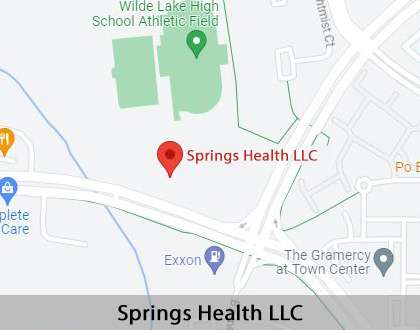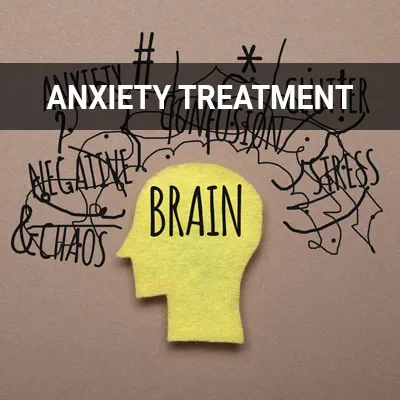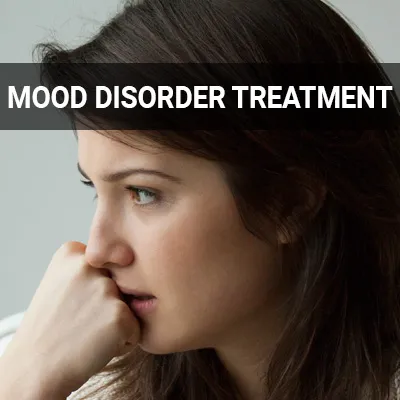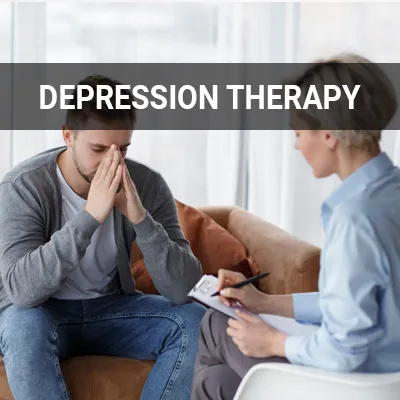Mental Health Therapy Columbia, MD
Mental health therapy provides treatment and support for a person’s emotional and mental wellbeing. How we think and feel has a huge impact on our overall health and ability to function. When someone struggles with their mental health, it can impact their work, family, and all aspects of their life.
We provide mental health therapy in Columbia and the surrounding area. If you are struggling, do not put off seeking help. Call us today at (410) 772-0774 to schedule an appointment or learn more about our services.
Mental Health Professionals
Many times, mental health therapy involves a treatment plan guided by one or more mental health professionals such as psychiatrists, psychologists, and therapists. People often use these terms interchangeably. Though all three work with people to improve their mental health, and often work together as part of a team, they have distinct differences. It is important to be aware of these differences to determine which type of professional to see.
Psychiatrist
Unlike other mental health professionals, psychiatrists are medical doctors and can prescribe medication. They have completed a 4-year college degree, followed by medical school, a one-year internship, and at least a three-year psychiatric residency. They are trained to differentiate mental health problems from other medical conditions that present as psychiatric symptoms and monitor the effects of mental illness and psychiatric drugs on the body. Psychiatrists may do some counseling, but their primary purpose is to treat mental illness through prescription medication.
Psychologist
A Psychologist is not a medical doctor but has a doctoral degree in the study of the mind and human behavior. A psychologist completes a two-to-three-year internship program after completing graduate school. These professionals typically provide long-term psychotherapy or counseling. They will often work with a psychiatrist to help a patient cope with a chronic mental health disorder such as bipolar or generalized anxiety disorder. They can diagnose mental health disorders, but their treatment focus is on psychological and behavioral therapy. They tend to work with a patient long-term and employ techniques such as talk therapy and cognitive behavioral therapy.
Therapist
Therapists or counselors may be social workers, licensed mental health counselors, or licensed family and marriage therapists and usually have a master’s degree. Like psychologists, they are not medical doctors and work with patients on behavior and lifestyle changes. These professionals tend to be patient advocates who coordinate care and provide guidance through specific life and relationship problems.
“It is important to be aware of these differences to determine which type of professional to see.”
Benefits of Mental Health Therapy
Many people neglect their mental health, thinking that it is all in their head and they need to just “handle it” on their own. However, tending to one’s mental health is equally as important as looking after one’s physical health. The two are so intertwined that when one is affected, the other is ultimately impacted. Much research shows that a person’s mental state indirectly or directly affects their ability to overcome physical illness and maintain a healthy lifestyle.
Mental health therapy helps those with chronic mental health conditions lead normal and manageable lives. Without the help of mental health medications and therapy, those with severe mental disorders such as bipolar disorder or schizophrenia may struggle to hold down jobs, maintain relationships, and take care of their health. In fact, they can risk becoming so psychologically unwell they may neglect their health and turn to substance abuse and other harmful behaviors. In many cases, mental health therapy for these patients can be a matter of life and death. However, with the right diagnosis and treatment, these individuals can thrive and lead the happy and productive lives they deserve.
Almost everyone will struggle with mental health at some point in their life and how they deal with it makes a significant difference in their personal and professional lives. The treatments we provide help people find relief from this turmoil and develop healthy coping mechanisms. Ways people can benefit from working with us include:
- Better overall physical health
- Enhanced self-esteem
- Greater focus and productivity
- Freedom from substance abuse and maladaptive behaviors
- Improved social skills
- Less conflict at work or school
- Relief from chronic anxiety and depression
- Strong and healthy relationships with friends, partners, and loved ones
Our team strives not only to help people return to wellness but also to give them the tools to increase their happiness and enjoy their lives more fully.
“Much research shows that a person’s mental state indirectly or directly affects their ability to overcome physical illness and maintain a healthy lifestyle.”
Psychiatric Medications
Medication is often a part of a patient’s treatment plan. Psychotropic medications are drugs that affect a person’s mood, thoughts, behavior, or perceptions. The idea of taking medication like this may make some people nervous. However, when used correctly, they are safe and a valuable part of one’s overall treatment plan.
Many mental health conditions are caused by imbalances of brain chemicals such as dopamine, norepinephrine, and serotonin. Psychotropic drugs work to balance these chemicals in order to help relieve conditions such as anxiety, depression, psychosis, and sleep disorders. The major types of psychotropic drugs include anti-anxiety medication, antidepressants, antipsychotics, mood stabilizers, and stimulants. We also help patients struggling to overcome addiction with medication to ease cravings or withdrawal symptoms.
Patient health and safety are our top priorities. Therefore, our psychiatrists exercise great caution when prescribing medication, ensuring the drugs will not have harmful interactions with anything the patient is already taking. Our team will thoroughly discuss what the drug is designed to do, any possible side effects, and anything the patient should avoid while taking the drug. The patient is started on a low dose in order to see how they will react. We closely monitor the patient to ensure the medicine is effective and not causing any troublesome side effects. If a particular drug is not working for a patient, we can either adjust the dose or substitute another medication.
“Our team will thoroughly discuss what the drug is designed to do, any possible side effects, and anything the patient should avoid while taking the drug.”
Check out what others are saying about our mental wellness on Yelp: Mental Health Therapy in Columbia, MD
Talk Therapy and Other Methods
Mental health problems are often complicated, and a patient may be struggling with more than one mental health issue at once. For these reasons, medication alone is rarely the answer. The most successful treatment combines a number of therapies, including talk and behavioral therapies.
Through talk or psychotherapy with a psychiatrist, we help people realize the underlying issues causing them mental distress or triggering unhealthy behaviors. Many times, when a patient begins treatment, they are not entirely conscious of what is behind their negative feelings. The therapist acts as a guide for the patient helping them find fresh insights into a problem they may have been dealing with for a long time. By examining their thoughts and feelings with a psychiatrist, they are able to take the first steps towards healing.
Cognitive behavioral therapy (CBT) is an approach we use to address a range of emotional and behavioral problems ranging from depression and anxiety to addiction and post-traumatic stress disorder. Behavior change is difficult and there is ample scientific evidence that CBT methods help produce change. CBT helps patients change unhealthy thinking patterns and discard maladaptive behaviors and replace them with healthy ones. This therapy has a proven track record of helping people develop greater self-confidence, improve problem-solving skills and lead more meaningful lives.
“Through talk or psychotherapy with a psychologist or counselor, we help people realize the underlying issues causing them mental distress or triggering unhealthy behaviors.”
Questions Answered on This Page
Q. What are the main types of mental health professionals?
Q. Why is mental health important?
Q. How are medications used to treat mental health problems?
The Treatment Process
Treatment starts with the consultation. The psychiatrist will want to know the patient’s current symptoms along with details of the patient’s lifestyle, circumstances, and what the patient hopes to gain from treatment. During this consultation, the patient will have the opportunity to get to know the practitioner, as a solid relationship based on trust is the basis for successful mental health treatment. The consultation may involve a physical exam and labs to see if a person’s physical health contributes to their psychiatric symptoms.
After a thorough examination and assessment of the patient’s needs, we work with them to design a customized treatment plan that helps them reach their goals. Mental health therapy is a process, and treatment will likely involve meeting with a practitioner once a week over the course of several months. This gives the psychiatrist the time they need to develop a keen understanding of each patient’s circumstances so they can ensure the treatment plan is working and guide the patient to a better state of wellbeing.
“After a thorough examination and assessment of the patient’s needs, we work with them to design a customized treatment plan that helps them reach their goals.”
Frequently Asked Questions
Q. How long will I need to be in treatment?
A. This is a difficult question to answer without you first having a consultation. Treatment varies from person to person. Therapy is almost always a long-term commitment, as this process takes time. Some find they benefit from ongoing treatment. Therapy can last several months to several years.
Q. How much does treatment cost?
A. This is another thing that varies from patient to patient to patient. There are many factors to consider, including length and frequency of appointments, if labs are needed and if the patient will prescribe medication. However, many insurance companies cover mental health treatment, and we work with patients on a payment plan. The last thing we want a patient to worry about while seeking treatment is the cost. We want patients to focus on getting well.
Q. What questions can I expect the practitioner to ask during the consultation?
A. The consultation often involves questions during the conversation with the practitioner and questions on a written questionnaire. The psychiatrist will ask about your current symptoms and situation. They will discuss your past and may ask questions about you and your family’s mental health history. We realize that talking about these things can be overwhelming, and you never have to answer anything you do not want to. Please know, however, that you are in a judgment-free zone, and the more you share, the better we can help you.
Q. Will I be put on medication?
A. This is between the patient and the psychiatrist and what the practitioner feels is right for the patient. We respect the fact that not everyone is open to being on psychiatric medication, and you do not have to accept any form of treatment that makes you uncomfortable. We closely monitor patients who are on medication to keep them safe and ensure the medication is working as it should.
Q. What physical illnesses manifest as mental health issues?
A. One of the most important things we do in our practice is to make sure we know the true cause of a person’s symptoms so that we give them the right treatment. The first step in doing this is to rule out any physical disorders that are causing the psychiatric symptoms. Lyme disease, chronic fatigue syndrome, sleep apnea, and thyroid and hormonal disorders often present as mental health issues. However, prescribing psychiatric medications for these will either do more harm than good or be ineffective. Therefore, our psychiatrists take steps to rule out these conditions and others like them when putting together a patient’s treatment plan.
Start Feeling Better – Visit Us Today
By visiting us as soon as possible, our team can help get you the professional treatment you need. Instead of waiting around and allowing the symptoms to get worse, we can provide you with treatment options.
Definitions
Call Us Today
If you deal with overwhelming emotional challenges, you do not have to face them alone. Our caring professionals are here to help. Call us now at 410-772-0774 to learn more and schedule an appointment.
Helpful Related Links
- American Psychiatric Association (APA). American Psychiatric Association (APA). 2023
About our business and website security
- Springs Health LLC was established in 2021.
- We accept the following payment methods: American Express, Cash, Discover, MasterCard, and Visa
- We serve patients from the following counties: Howard County
- We serve patients from the following cities: Columbia, Clarksville, North Laurel, Ellicott City, and Savage
- National Provider Identifier Database (1689198350). View NPI Registry Information
- Norton Safe Web. View Details
- Trend Micro Site Safety Center. View Details
Back to top of Mental Health Therapy








